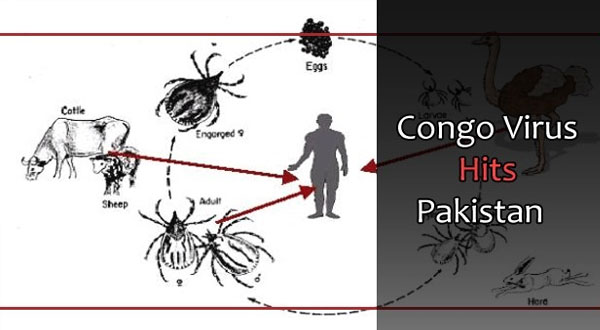ISLAMABAD: Confirmation of Congo virus in district Bahawalpur of Southern Punjab, is alarming as well as a wake-up call for the country to implement programs aimed at combating emerging infectious diseases.
Sources said that 35 Congo virus cases reported within seven months across Pakistan and six of the died. Pakistan is the fourth largest nation in Asia sharing its borders with other highly populated countries in the Asian continent. Unfortunately, there is not even a single public sector health care facility to treat people with the existing and upcoming life-threatening infections in the world.
Former Vice Chancellor of the Islamia University of Bahawalpur, Dr. Muhammad Mukhtar has said that Congo virus belongs to the family of infectious agents called viruses which are the smartest infectious agents on the earth. He also predicts that population pressure, climatic changes and mechanized lifestyle will lead to the emergence of more deadly viruses than the existing one.
It is important to mention here, that viruses are neither living nor non-living organisms. They need a living cell to propagate, and every life on this earth including bacteria are prone to viral infections.
On top of this viruses are genetically the smartest organisms on our planet earth. Even, we the human being continue our existence from parents to child through genetic material call deoxyribonucleic acid (DNA), same is for other living organisms including bacteria, fungi, plants, etc.
However, the viruses can have eight different types of genetic material thus proving their capabilities and versatilities in causing infection.
Congo virus belongs to the family of viruses called zoonotic viruses meaning the virus can be transmitted from other livings to human. Examples of zoonotic viruses are bird flu, Middle East Respiratory Syndrome Virus and several others.
Congo is spread from animal to human by ticks and research is ongoing to understand its mechanism of infection. However, the outcome of infections is serious in nature, as the virus destroys our disease-fighting cells.
During the animal care ticks acquire the virus from animals and transmit to humans that are the existing reality.





